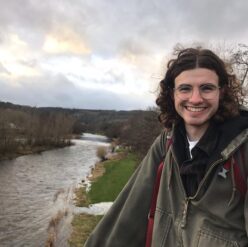I decided to study Chemistry at university for two reasons. One, I wanted to have a successful career where I got payed well, and two, because I wanted to save the world. When you are a 17 year old kid who doesn’t know anything and is easily influenced, this means you have to do Science. And because of my interest in the natural world (and to a lesser extent my hero complex), it did not take long to realise the best option would be to become an environmental scientist.
When it reached the inevitable stage of my life where I had to start thinking about a career, I did not hesitate in choosing Chemistry. So I picked the best universities that were not Oxford or Cambridge (not because I didn’t think they were good universities, I just didn’t think I was clever enough to get in!), and chose the place I liked best on the open day. That is how I found myself doing a Masters degree at Bristol University.
What followed in my four years at Bristol was a deep relief that I had chosen the right course and university. After muddling through the first 2 years, when most people went off to do a year in industry or a year abroad in the 3rd year, I stayed in Bristol. Although I didn’t get to go and party in America for a year, this eventually turned out for the best, as I spent the year doing lots of lab work and research. It was during this time I had the realisation I enjoyed research more than anything else.
When it came time to pick a graduate career (the most stressful time of my life for sure), I knew I had to do a PhD. I didn’t care what I would eventually do, I just knew that the next logical step for me was a PhD. I wasn’t particularly interested in any Chemistry research that I had come across during my undergrad, so due to my dream of working in environmental studies, I started looking for projects in the area where I could use my Chemistry experience. Fortunately, Edinburgh decided this was good enough and offered me a PhD position.
I study the mechanism of biologically controlled crystallization in a species of marine phytoplankton (phyto=plant, so they photosynthesise basically) called coccolithophores. You have definitely heard of them, materials they produce accumulate together under pressure to produce the Great Cliffs of Dover. You can also see great blooms of them on nature documentaries, with David Attenborough saying “these are the unsung heroes of our planet” or something like that. They are pretty important in studying how biology produces different materials, and they play a role in key environmental processes as well.
Although I haven’t become an environmental scientist (I did get quite close though), I think it’s for the best as I wasn’t ready to give up Chemistry. I get to spend a lot of time in the lab and use expensive equipment to look inside cells and analyse what I see. Plus, the ability to control if millions of cells live or die make me feel like an omnipresent ruler.


